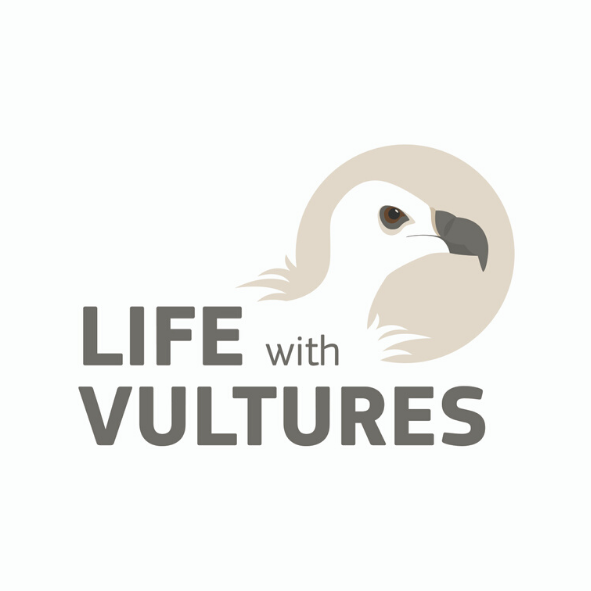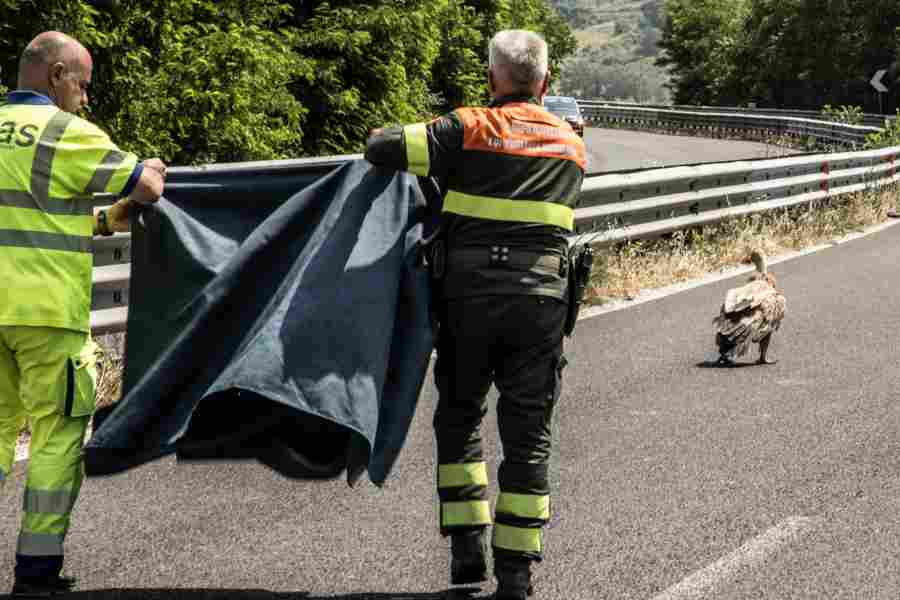The journeys of Griffon Vulture Nepheli in the Cypriot skies ended rather abruptly. An electricity transmission pylon in Xeros Valley in Paphos, Cyprus, took the life of the Griffon Vulture Nepheli due to electrocution, leaving the species’ small and vulnerable population in an even more dire position.
Nepheli’s story




The Game and Fauna Service (GFS) rescued Nepheli as a juvenile in autumn 2019 from the beach of Zapalo in Episkopi. Its rehabilitation lasted a few weeks. Ahead of its release, the LIFE with Vultures team equipped it with a GPS transmitter provided by us at the Vulture Conservation Foundation (VCF) in order to monitor its movements and behaviour in the wild. After the joint release of Nepheli and Icarus back into the wild, the two birds reunited with the rest of the vultures almost immediately. A few months later, in December 2019, Nefeli was disoriented and landed in the centre of Limassol, where members of the GFS and BirdLife Cyprus (BLC) closely monitored it for three days until it returned to its colony. The project team closely followed its movements from the day of its release on 15 November 2019 until early February, when Nepheli lost its transmitter.
Electrocution takes the life of Nepheli in Cyprus



On 19 April 2022, officials from the Cyprus Broadcasting Corporation came across a dead bird in an area near a station antenna and informed the GFS. A site visit at the location, which was within an Important Bird Area, revealed that it was a familiar vulture, Nepheli. They found the carcass under an electricity transmission pylon that seemed to have been there for a few days, with evidence of electrocution on its body. A post mortem carried out the next day by the Veterinary Services in Cyprus confirmed electrocution to be the cause of death.
A significant blow to the vulnerable population
Nepheli would have turned three years old in September, and in a couple of years, it would have reached breeding age, likely contributing with its own offspring and helping boost the vulture population.
The tragic loss of Nepheli proves once again that human interventions that do not take wildlife into account can have devastating consequences for some species. But there are solutions, such as identifying high-risk electricity infrastructures to mark overhead power lines to avoid collisions and place insulation on pylons to prevent electrocution. When these measures are implemented, they can help preserve wildlife, allowing nature to coexist with humans. The LIFE with Vultures team is currently discussing such actions with the Cyprus Electricity Authority in order to protect and conserve the endangered Griffon Vulture. It is imperative that these discussions quickly turn into appropriate action before more birds experience the same fate.
In the meantime, the team monitoring the breeding pairs
The LIFE with Vultures staff currently focus their attention on the four Griffon Vulture pairs incubating their eggs, as the loss of even one parent would be catastrophic for the conservation of the species in Cyprus. During this time, keeping the breeding colonies safe from human disturbance is vital for the species’ survival.
Undoubtedly, this season’s breeding activities signal hope for this year’s breeding success and the future of the species. Having pairs that breed successfully is only one of the many preconditions for the vulture population to recover. This is why the LIFE with Vultures project foresees restocking actions to boost the Cypriot population. In fact, the first restocking action took place last November, when 15 Griffon Vultures were brought to Cyprus from Spain. The birds are currently in an acclimatization aviary until their release. It is our hope that, just like the previously imported vultures from Crete continue contributing to the survival of species long after the GYPAS project ended, the Spanish vultures will carry this legacy into the future so that the local population becomes viable in the long term.
The LIFE with Vultures project

LIFE with Vultures is a targeted conservation project for the protection of the Griffon Vulture in Cyprus. In this four-year endeavor (2019-2023), BirdLife Cyprus, the Game and Fauna Service, Terra Cypria – The Cyprus Conservation Foundation and the Vulture Conservation Foundation have joined forces to tackle the main threats facing the Griffon Vulture and prevent Cyprus’ most threatened bird of prey from going extinct. The project has a 1,375,861 Euro budget and is co-funded (60%) by the EU’s LIFE programme.




